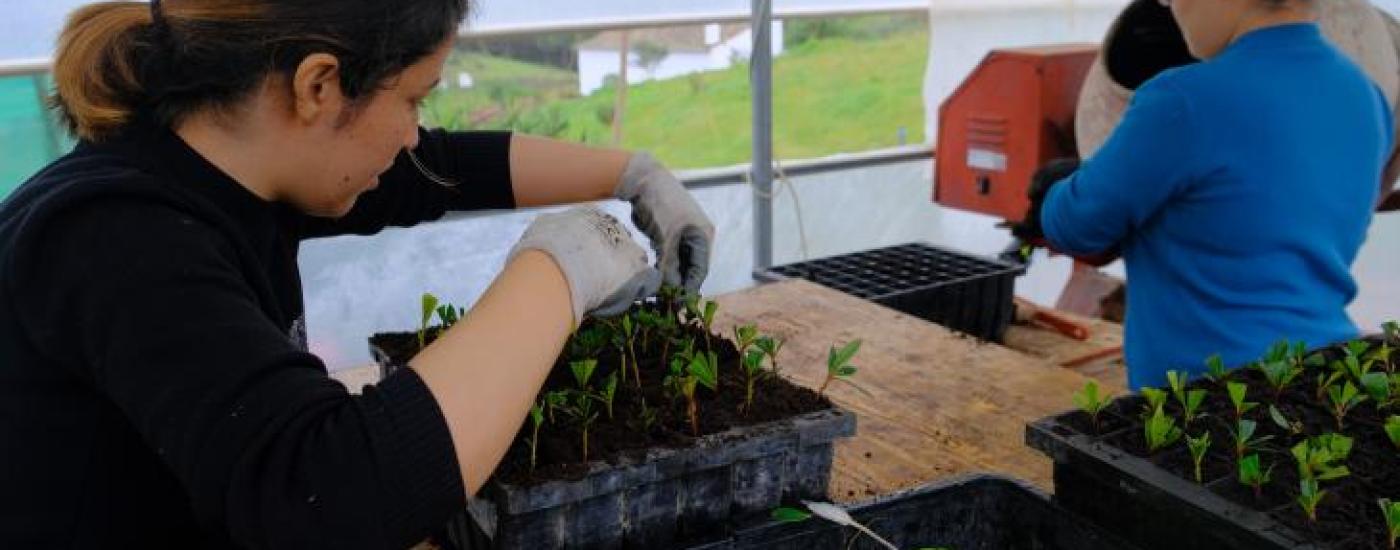You are here
Afghan Refugees in Portugal Regenerating Soil and Soul

Here is a report on a project that is supported by Quakers world-wide.
On a sunny winter morning, two young women fill their hands with twigs of strawberry tree, a Mediterranean species with a tortuous trunk that bears red berries. They gently plant the cuttings hoping they will grow roots in a field outside Mertola, a small town of white houses and cobbled streets in southern Portugal. The women fled Afghanistan in 2021, after the fall of Kabul. For the past year, they have been collecting seeds, nursing seedlings, planting and harvesting an area surrounded by wooded hills near the banks of the Guadiana river in the semi-arid region of Alentejo.
“It’s good to be with nature,” says the youngest of the women, Norina. Before the Taliban took over her hometown, she was a women’s rights activist studying to become a journalist. As she tucks cuttings into the bed of earth she explains that even the smallest twigs can grow into tall, sturdy trees.
Terra de Abrigo – ‘land of shelter’
Norina is one of a group of eight young Afghans forced to flee Kabul because of their human rights activism. They moved to Portugal as part of the project Terra de Abrigo (literally “land of shelter”) that hosts refugees and includes them in land regeneration efforts.
“Our programme is based on the idea that caring for people and caring for the planet should always be connected,” says Eunice Neves, a landscape architect and permaculture designer who coordinates Terra de Abrigo in a partnership with Terra Sintropica, a local association focusing on agroecology and land regeneration, and Permaculture for Refugees, an international organisation. “To have a truly sustainable world, we need to have people working together with nature, and a fair and equitable distribution of resources,” she continues.
“Our programme is based on the idea that caring for people and caring for the planet should always be connected,” says landscape architect and permaculture designer Eunice Neves, who coordinates Terra de Abrigo in a partnership with Terra Sintropica and Permaculture for Refugees. “To have a truly sustainable world, we need to have people working together with nature, and a fair and equitable distribution of resources.” For Mohammad Ali, who had to flee Afghanistan owing to his human rights work, there are many connections between land and social regeneration. “When we use chemicals we are inflicting violence on the land. When we destroy forests, that’s violence too”.
To view the whole article, click here: PDF file or Word file.
